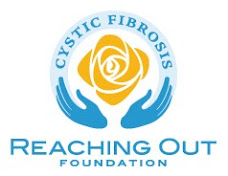Carrier Screening For CF In US Genetic Testing Laboratories: A Survey Of Laboratory Directors
Main Category: Cystic Fibrosis
Also Included In: Genetics
Article Date: 28 Oct 2008 - 3:00 PDT
Market pressures may have more influence on clinical practice than laboratory guidelines: That's one conclusion of a Center survey, which found that guidelines for cystic fibrosis (CF) carrier screening have only been partially adopted. David Kaufman, Sara Katsanis, Gail Javitt, Juli Murphy, and Kathy Hudson report in the October issue of Clinical Genetics that seven percent of responding genetic testing laboratories adopted two major screening guidelines issued by the American College of Medical Genetics and the American College of Obstetricians and Gynecologists, and that 13 percent have adopted neither recommendation. These findings indicate that factors other than clinical guidelines may influence laboratories' CF screening practices.
CF is an incurable, progressively disabling, and fatal disease of the sweat and mucus glands, which develops in people who have inherited two mutated copies of the CFTR gene. One in 31 Americans is a carrier of a mutated CFTR gene, making CF one of the most common major genetic disorders. In 1997, a panel convened by the National Institutes of Health concluded that genetic testing for CF should be offered to couples currently planning a pregnancy as well as couples seeking prenatal testing. Because more than 1,300 disease-causing mutations have been identified in CFTR, and different laboratories can test for different mutations, in 2001, the American College of Medical Genetics and the American College of Obstetricians and Gynocologists issued sets of CF testing guidelines (revised in 2004) to improve and standardize population-based CF carrier screening. The study conducted by GPPC focused on two primary components of these guidelines. First was the recommendation that prospective parents be tested for the a CF mutation known as the 5T allele only as a "reflex" after another CF mutation, called R117H, has been identified first. This is because although the 5T allele is relatively common, it can cause CF only when found in combination with R117H. Because the 5T allele is found in between five and nine percent of the general population, screening all pregnant couples for the 5T allele instead of testing only those with an R117H mutation can identify and alarm a large number of individuals who are not at risk of having a child with CF, and provoke unnecessary invasive prenatal testing. The second major recommendation made to laboratories was that they should only screen a panel of 23 of the most relevant, well-studied mutations, which reliably identifies the majority of couples at risk of having a child with CF but remains cost-effective.
The Center survey sought to examine how guidelines for genetic testing for CF have influenced the practice of laboratories that perform the tests - a "necessary first step," write the authors, "in understanding the effectiveness of developing such guidelines, the realities and barriers that may limit uptake, and whether adoption of guidelines (or the lack thereof) has any serious consequences for genetic screening programs." If research shows that the adoption of genetic testing guidelines improves the health outcomes of people getting the test, then finding ways to overcome barriers to their adoption will be critical.
Of 190 responding genetic testing laboratories (a 55 percent response rate), 45% offered CF screening to potential parents for the presence of a mutated CFTR gene. The survey assessed these laboratories' adoption of two primary components of the CF carrier screening guidelines: the reflexive reporting of 5T test results, and the recommended 23-mutation screening panel. While four of five CF screening laboratories followed the 5T guidelines, 90% of laboratories tested more than 23 mutations (some tested up to 150 mutations). Just seven percent of laboratories adopted both guidelines, and 13 percent of respondents adopted neither the 5T guidelines nor the 23-mutation panel.
These results suggest that laboratories' screening practices are affected by factors other than clinical guidelines - possibly including market pressures to purchase CF testing kits that test for more than 23 mutations, despite the lack of clarity about the utility of such testing in the general population. Laboratories' choice of which CF testing kits to use also may be limited by the testing platforms used in a particular lab. The authors note that their findings carry implications beyond CF, and may impact the development of recommendations for other types of genetic testing: "As new guidelines for other population-based genetic tests emerge, it will be useful and important to understand the extent of their influence on practice."
Written by Sara Brinda
Kaufman, D.J., S.H. Katsanis, G.H. Javitt, J.A. Murphy, J.A. Scott, and K.L. Hudson. Carrier screening for cystic fibrosis in US genetic testing laboratories: a survey of laboratory directors. Clinical Genetics 74: 367-373.
The Genetics and Public Policy Center at Johns Hopkins University
The tremendous success of the Human Genome Project has laid the foundation for a true revolution in public health, promising improved diagnosis, more effective medicines, and individually tailored health care. The Genetics and Public Policy Center was created in 2002 at Johns Hopkins University by Pew Charitable Trusts to help policymakers, the press, and the public understand and respond to the challenges and opportunities of genetic medicine and its potential to transform global public health.
http://www.dnapolicy.org
Subscribe to:
Post Comments (Atom)





No comments:
Post a Comment